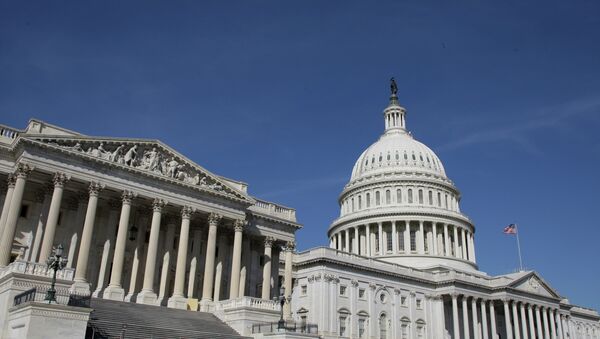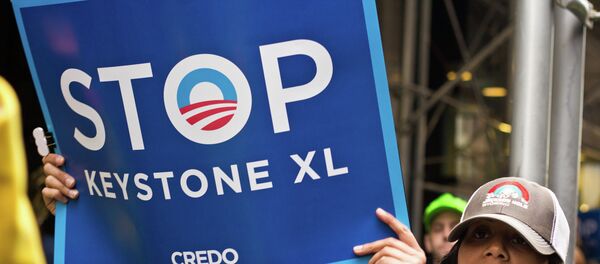“The bill is passed,” Boehner said.
270 Representatives voted in favor of the bill and 152 against.
The House had already passed similar legislation in January, and voted once again, because of the Senate amendments, including a provision that “climate change is real and not a hoax.”
The Case for #KeystoneXL. Infographic c/o @GOPLeader → http://t.co/CvonlOsZqm pic.twitter.com/1XBe0KLmae
— House Republicans (@HouseGOP) 11 февраля 2015
By deciding to vote on the Senate version of the bill, the House sped passage of the legislation. Any change to the Senate bill would have required both chambers of Congress to vote on the differences, according to congressional procedures.
US President Barack Obama has said he would veto the Keystone XL Pipeline bill. To override the president’s veto, both congressional chambers need to pass the bill with two-thirds of the vote.
Rejecting the #KeystoneXL pipeline is a no-brainer. #NoKXL pic.twitter.com/4vnPLpRjlM
— Bernie Sanders (@SenSanders) 11 февраля 2015
If the bill becomes a law, the Calgary-based TransCanada Corporation will be able to construct the pipeline to transport about 830,000 barrels of oil per day from the Alberta Tar Sands in Canada to US refineries on the US Gulf Coast and the Midwest, according to the company’s proposed pipeline plan.
Environmental groups oppose the Keystone XL pipeline, claiming that the US Environmental Protection Agency’s (EPA) assessment of the project proves it has to be closed because of its impact on climate change.
Supporters of the bill point out that the State Department released an environmental impact statement in January, saying the project will have no significant impact on the environment.



